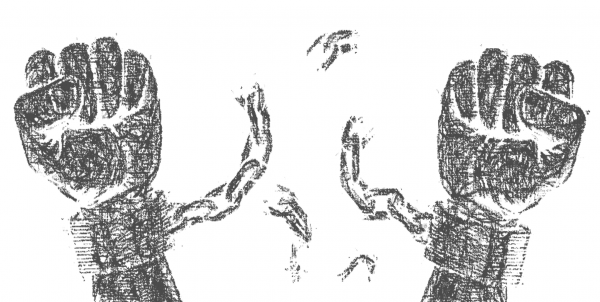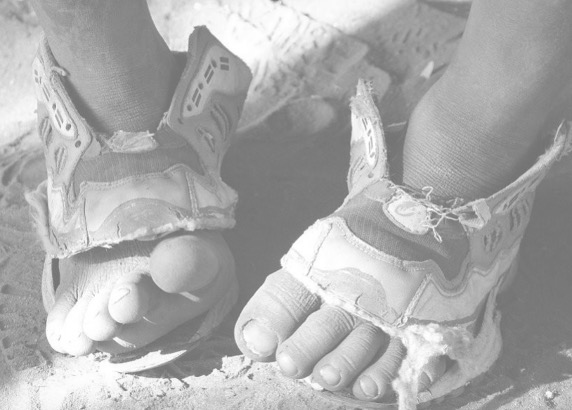Thought for the Week
Monday 5 July
 As part of our ‘Justice Series’ we have been talking about the importance of justice being done, people receiving what is fair and right; what they deserve. But in baptism we are reminded of God’s grace and mercy which results in people receiving what they DON’T deserve.
As part of our ‘Justice Series’ we have been talking about the importance of justice being done, people receiving what is fair and right; what they deserve. But in baptism we are reminded of God’s grace and mercy which results in people receiving what they DON’T deserve.
For we are all guilty of sin (acting unjustly).
Romans 3:23; ...for all have sinned and fall short of the glory of God,
And justice demands a price be paid by us.
Romans 6:23; For the wages of sin is death…
But God chooses not to treat us as our sins deserve. Instead of making us pay the price He gives us a free gift.
Romans 6:23;…the gift of God is eternal life in Christ Jesus our Lord.
But this creates an issue. Our God of justice must see justice done. He cannot simply let us off; the price must be paid!
Isaiah 53:5;
He was pierced for our offences, He was crushed for our wrongdoings; The punishment for our well-being was laid upon Him, And by His wounds we are healed.
He chose to pay that price on our behalf when He put on flesh (1 John 1:14) and willingly laid down his life for us (John 10:18) as he was crucified on the cross.
Justice was satisfied and the price paid. But that was not the end for…
Acts 2:24;
…God raised him from the dead, freeing him from the agony of death, because it was impossible for death to keep its hold on him.
We find memorialised in the model of Baptism God’s grace in paying the price for our sins through His death, and His conquest over the consequences of sin, on our behalf, in His resurrection.
Romans 6:4-5;
We were therefore buried with him through baptism into death in order that, just as Christ was raised from the dead through the glory of the Father, we too may live a new life.For if we have been united with him in a death like his, we will certainly also be united with him in a resurrection like his.
We thank God for His perfect divine justice, and His mercy, grace and love for us that we see illustrated in Baptism.
Monday 28 June
Political Justice
It’s so easy to get overwhelmed as we listen to the News and hear of so much injustice in our world. Our ultimate hope is that one day God will right every wrong and usher in a new earth where his peace and righteousness reign and where there is no death or mourning or crying or pain because He will make everything new (Rev 21:4-5). But how do we Christians live today in the light of wars, christian persecution, the climate emergency, being responsible citizens in our own country despite it becoming increasingly ‘unchristian’ in its laws? And how does a talk about political justice change how we live this week?
Peter writing in a time of persecution under Roman rule reminds Christians of their status and their priorities:- “Live as free people, but do not use your freedom as a cover-up for evil; live as God’s slaves. Show proper respect to everyone, love the family of believers, fear God, honour the emperor.” 1 Peter 2:16-17
This week let us pray for governmentsand for persecuted Christians; educate ourselves; live out kingdom values in our work and community and home situations; and actively engage with issues when we are led to do so, with boldness, hope, love and peace.
Justice is coming – the glory of Christ as Judge https://www.desiringgod.org/articles/justice-is-coming
Open Doors information about persecuted Christians https://www.opendoorsuk.org/persecution/?gclid=CjwKCAjwt8uGBhBAEiwAayu_9aLQlDLBev5bH424j7xWFCByPQlkZVSkWdJW3CzmRy9ZzgIPDIfFOxoCqxQQAvD_BwE
Operation Noah’s call to churches over climate change http://operationnoah.org/wp-content/uploads/2014/06/Final-ON_Declaration_web.pdf
Christian Concern UK https://christianconcern.com
Biblical Justice and social Justice https://sharedhope.org/2018/06/04/biblical-justice-and-social-justice/
Christians in Parliament website (& link to Parliamentary Prayer breakfast) https://www.christiansinparliament.org.uk/
The contact details of David Simmonds who is the local MP (Conservative) for most of us is . Of course some of you in South Ruislip & Uxbridge can write to Boris Johnson directly!
Monday 21 June
 Social Justice
Social Justice
Social injustice can be defined as the unfair, unequal, and exploitative treatment of others, often on the basis of arbitrary reasons such as religiosity, ethnicity, nationality, gender and socio-economic status amongst other things. We could summarise it as a failure to obey God’s command to love our neighbour as ourselves (Mark 12:31).
As we consider the immense scope of suffering, exploitation, and injustice in this world, it would be easy to conclude that we are powerless to do anything about it. Indeed, Jesus told us we will always have the poor among us (Matthew 26:11). As a result, it is all too easy to resign ourselves to passive acceptance of social injustice. But God wants us to be active!
Micah 6:8 says;
[God] has shown you, O mortal, what is good. And what does the Lord require of you? To act justly and to love mercy and to walk humbly with your God.
Our task then is not to resolve the global issue of social injustice in all its forms (that task will only be completed with the return of Christ) but simply to act justly and advocate for justice where God has placed us, using the opportunities and resources he gives us each day. As we pray for justice and act justly we may not see global transformation but we will be a part of seeing some individual’s lives transformed for the better, and in doing so be conduits of God’s love to them.
Check out the Micah Network website (https://www.micahnetwork.org/) for information and resources that help Christians know how to respond effectively to social injustice.
Monday 14 June
Economic Justice: Leviticus 25 (The Jubilee)
‘Because we lack a divine centre our need for security, has led us to an insane attachment to things’. R. Foster.
Humanity’s relationship with material possessions and money is complicated. Since the ‘fall’ in Genesis we have always needed to acquire ‘stuff’ to survive but it seems meeting basic needs is not enough for us and we always want more.
An article in the Guardian from January 2019 states:
‘… the 26 richest billionaires own as many assets as the 3.8 billion people who make up the poorest half of the planet’s population.’
This highlights the great disparity of economic wealth in the world. We may not find ourselves amongst the 26 super rich but, according to research from 2016, if we have £2,300 in assets (after debts) that would make us among the wealthiest 50% of the world. If we have assets greater than £49,000 we would be in the top 10% wealthiest in the world (figures taken from Credit Suisse; 2016). These figures are humbling but the value is not in comparing our situation to others and feeling guilty or hard done by as a result, but in how we respond to them.
How can I use the material wealth I have to help others in economic hardship?
Do we give to charities that help people in economic difficulty (e.g. Food Bank which Fairfield Church is a collection point for)
How can I advocate for those impacted by Economic injustice?
Tearfund has some great resources and campaigns to help you be a part in advocating for victims of economic and other forms of injustice: https://www.tearfund.org/get-involved/take-action
How can I help people with debt issues?
Christians Against Poverty (CAP) do some great work in this area. Check out their website at https://capuk.org
Monday 7 June
 “How beautiful are the feet of those who bring good news!”
“How beautiful are the feet of those who bring good news!”
Romans 10:15
I was challenged in my devotional readings recently by the Christian author Shane Claiborne’s recollections of Mother Theresa, whom he worked alongside for a short time. He recalls that the thing he found most striking about her was NOT her life of sacrificial service and Christian witness to the poor and needy on the streets of Calcutta, some kind of angelic spiritual aura or any great spiritual wisdom… but her feet!
Not that her feet looked particularly special, in fact he describes them as hobbled and deformed. Their beauty, he explains, came not from their appearance but the reason for their appearance. He discovered that whenever shoes were donated, not wanting others to be given the worst pair, she would always find the worst pair for herself and give her own pair away if they were better. Over many years of doing this her feet became deformed.
Her heart was to put others first even when it came at a cost to her comfort and health. I am sure that by literally walking in another’s shoes she was better able to empathise and relate to the hardships of those around her as she sought to pray for and minister to them. What a great example and challenge to us as we consider what it means to truly ‘love our neighbour’.
Paul Tanner